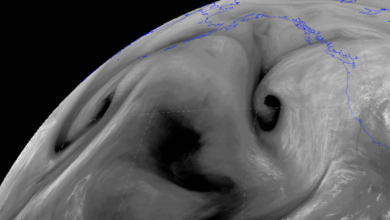Youth Mental Health in the Throes of Climate Change • Watts Up With That?

We live in an age of unparalleled wealth and comfort, where bogeyman must be created because they don’t actually exist.
Missy’s Twitch doesn’t even touch the surface of this insanity.
In a recent article by CNN, a dramatic narrative is woven, linking the mental health of young people to the omnipresent specter of climate change. The article, titled “Climate change can have ‘lifelong impacts’ on young people’s mental health, report says”, presents a tapestry of assertions, suggesting that the “existential threat” of climate change is a significant contributor to a spectrum of mental health issues among the youth.
The Opening Act: Setting the Stage with Broad Strokes
“Climate change can play a major role in affecting young people’s mental health,”
https://www.cnn.com/2023/10/11/health/climate-change-youth-mental-health/index.html
the article begins, setting the stage for a narrative that intertwines the psychological well-being of the youth with the environmental challenges of our times. The authors lean heavily on a report from the American Psychological Association, which acts as the cornerstone of their argument, providing the structural framework upon which the story unfolds, just another of the myriad examples of ideological capture of Western institutions.
The Plot: A Cascade of Consequences
The article unfolds a cascade of consequences, suggesting that environmental events linked to climate change, such as “weather disasters, extreme heat and poor air quality,” act as triggers, exacerbating mental health issues in children and teenagers. The narrative is embroidered with details, suggesting that these environmental adversities can lead to “post-traumatic stress disorder,” and a host of other psychological challenges, including
“anxiety, depression, bipolar disorder, aggression, cognitive impairment and more.”
The Characters: Vulnerable Protagonists
Young people are portrayed as particularly vulnerable protagonists in this narrative. The article suggests that the youth, due to their developmental stage, lack the coping strategies that adults might possess, making them more susceptible to the mental health impacts of climate adversities. The narrative is punctuated with quotes that emphasize the vulnerability of the youth, such as,
“Experiencing trauma at an early age can have lifelong impacts on emotional health and well-being.”
The Antagonist: Climate Change and its Many Faces
Climate change is cast in a multifaceted role, an antagonist with many faces, ranging from extreme weather events to subtle influencers such as maternal anxiety. The article insanely suggests that the impacts of climate change begin to cast their shadows even before birth, influencing the mental health trajectory of individuals from a very early stage.
Those mental health consequences begin even before a child is born, the report says. Prenatal exposure to weather disasters, high temperatures, air pollution and maternal anxiety can raise a child’s risk of a variety of behavioral and developmental issues, including anxiety, depression, ADHD, developmental delays, low self-control and psychiatric disorders.
The Climax: Adolescence and the Turmoil of Uncertainty
A significant portion of the article is dedicated to the exploration of the impacts of climate change on adolescents and young adults. It suggests a landscape where the youth are navigating a terrain marked by uncertainty, anxiety, and a lack of clarity about the future. Quotes such as,
“How do you plan for the future when you don’t know what the future will look like?”
encapsulate the essence of the challenges faced by the youth in this narrative.
Conclusion: A Call for Collective Action
The article concludes with a call for collective action, suggesting roles for various sectors, including education and healthcare, in mitigating the impacts of climate change on youth mental health. It emphasizes the universal nature of the challenge, suggesting that it is not merely a concern for healthcare professionals but a broader societal issue that requires concerted effort and action.
In conclusion, the CNN article presents a vivid narrative that seeks to establish a strong link between climate change and youth mental health, despite no trends in temperature or weather that a human could detect without advanced instruments and esoteric statistical handsprings.
While it is rich in details and quotes that emphasize the vulnerability of the youth in the face of climate adversities, it is nothing but delusional fantasy, casting climate change as a pervasive and omnipotent influencer of mental health trajectories.
Feel free to visit the original article here.



